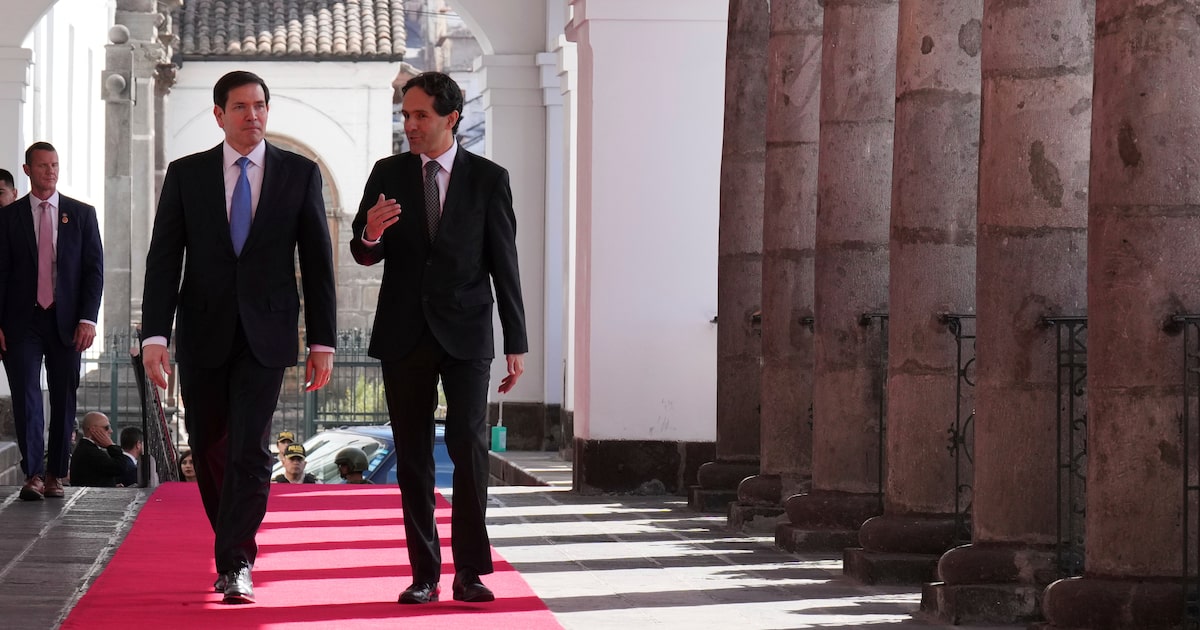In the same week that Secretary of State Marco Rubio visited Mexico and Ecuador to highlight U.S. administration priorities, including “swift and decisive action to dismantle cartels,” President Donald Trump announced a military strike against an alleged Venezuelan drug boat in the Caribbean. The strike killed 11 people.
This is a major shift in the way the U.S. tackles drug trafficking, not to mention legally dubious. In the past, the Navy or Coast Guard has intercepted U.S.-bound drug boats and captured the crews, according to reporting by The New York Times.
In recent weeks, the U.S. deployed a fleet of eight warships with 4,500 U.S. military personnel to Latin American waters. We suspect this wasn’t just to take out a small boat with alleged gang members. The boat strike, however, has created confusion about the long-term U.S. strategy here.
In a news conference in Quito, the Ecuadoran capital, Rubio said the U.S. will no longer hunt and arrest drug dealers.
“The president has said he wants to wage war on these groups because they’ve been waging war on us for 30 years,” he said.
This show of strength and the large military presence raises several questions: What are the rules of engagement? How did the U.S. military confirm the boat was operated by Tren de Aragua gang members? If these were gang members, why not detain them and prosecute them to try to get at their bosses?
The boat strike came after the Venezuelan regime was getting ready for an invasion. Most analysts discredit the idea of a U.S. invasion. However, the Trump administration seems to be zeroing in on Venezuela. The South American country, while a transit hub for drug trafficking, is one piece of a much larger puzzle.
In Mexico, Rubio and his counterpart Ramón de la Fuente emphasized a strengthening of security collaboration. In Ecuador, Rubio announced that two Ecuadoran gangs were designated as foreign terrorist organizations, while adding $20 million in security commitments. These agreements move the U.S. in the right direction.
Rubio is right that for decades, U.S. drug policy has failed, but if the Trump administration wants to change the tide, it needs a regional approach. Conspicuously absent from Rubio’s trip was Colombia, the world’s leading producer of cocaine.
If the U.S. is serious about combating drug trafficking, it needs Colombia on board. Granted, Colombia’s President Gustavo Petro is erratic and not exactly friendly with the United States, but we don’t always get to choose our partners. Colombia and its leadership need to be part of the larger, regional plan to crack down on cartels.
Strengthening security ties in Ecuador and Mexico is important, but to defeat these groups, the U.S. must disrupt the illegal drug supply chain. The U.S. should avoid military incursions in Latin America that could get our nation pulled into a new international conflict. Stronger, strategic partnerships with Latin American leaders are the wiser route.
Part of our series The Unraveling of Latin America, this editorial analyzes the Trump administration’s strategy to combat drug cartels.
We welcome your thoughts in a letter to the editor. See the guidelines and submit your letter here.
If you have problems with the form, you can submit via email at letters@dallasnews.com
